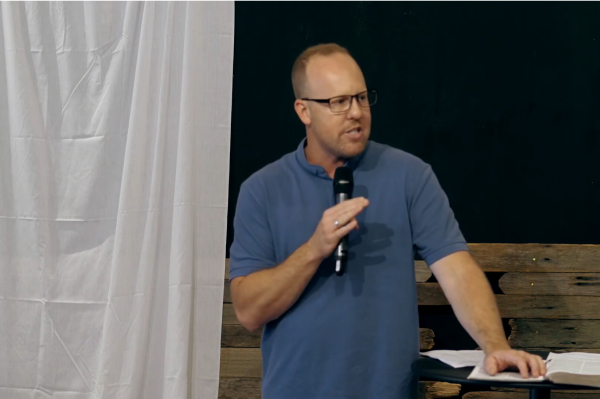How Well Do You Know Yourself?

Let's say this is the "sanctification beat" of your heart: "Will someone help me understand why I do what I do and help me grow closer to God?" If that is you, then the good Lord has provided amazing grace to you. Your question is fantastic for any individual to ask. It takes a humble person to be willing to ask the hard questions about their attitudes, words, and behaviors.
An uncaring or fearful person would never be so open or brave enough to take their soul to task this way. If you're like me, you know it's easier to ignore the things that are wrong with us rather than confront ourselves about those annoying habits that need to change.
It's too hard to unpack and process internal struggles. The magnitude of the task can feel too insurmountable to tackle. The temptation to bury your head in the proverbial sand and press on while keeping your mind distracted from the needful matters of the soul is enormous.
What is Truth?
Even if you did want to do a deep dive into your problems, you could not understand your complicated soul correctly because you have a skewed perspective. You may want to live for God by making sense of your story, but because of Adamic fallenness, you need help.
My desire is not to discourage you but to expand your thinking about how transformation happens so you can find the help that you long to have. Here are two essential elements for anyone who wants to make real sense out of their lives.
- You must be asking the right questions to God.
- You must be asking the right questions to your close network of friends.
Fundamental Idea –There is a level of self-deception when it comes to an understanding of ourselves. We're intensely loyal to ourselves, and it's hard to accept certain truths about ourselves.
Asking the right questions to God and a transparent community are two essentials when trying to come to proper conclusions about yourself. This truth is why a humble person will begin with a "sense of self-suspicion," as they recognize their proclivities of misunderstanding themselves.
The humble person is always operating with God's favor (James 4:6), which empowers him to fight self-deception while enlisting the help of competent, courageous, and compassionate friends to bring corrective care into his life.
Along with his pursuit of these types of friends, he understands that nobody will love him enough to care for his soul in an ongoing manner. He does not set up the illusion that his community will consistently love God and others more than themselves. Why? His friends will be like him.
The Friendship Trap
It's a disappointing trap to think people will always be there while asking you the hard questions that you need to transform. And to compound this problem, those individuals will not have all the correct information, which brings you to a significant life decision.
If you really and truly want to be found out for who you are, you will have to foist yourself on others while requiring them to get into the trenches of your life. If you desire to be the person God wants you to be, you're going to have to take the initiative.
You must be willing to "tell your secrets" rather than waiting on and expecting others to be wise enough, intentional enough, and caring enough to ask you the right questions and provide the soul care that you need to change.
Too often we complain about the lack of care in the body of Christ, which is a valid argument to some degree, but many times we are not willing for others to get into our deeper junk.
The temptation is to do the opposite by re-editing yourself into a person you hope others will find more acceptable. And you keep re-editing yourself into as many iterations as you need to until you are appreciated by those you want to like you.
After a while, you will lose your authentic self by becoming a highly edited "representative" that you trot out into the public domain, hoping they will find that person more acceptable. If you don't want to be that hypocritical person, you'll have to make some hard choices.
Things To Remember
- Don't assume that you are right about yourself, your situation, or your friends.
- Don't expect others will be wise enough, intentional enough, or loving enough to pry into your life.
- Don't assume others will ask you the right questions
Things To Do
- Ask God to show you the realities of your authentic self.
- Ask God to bring you a trusted friend who you can "foist" yourself on to get the help you need.
- Hold your friend accountable for holding you accountable so you both can unravel and unpack your life.
- Seek to build a community around you and your friend as you continue down this path of transformative sanctification.
- You "go and do" for others what you'd like for them to do for you.
- Don't settle for less.
Rick Thomas is an author, speaker, consultant, teacher, and podcaster. He has been encouraging and training Christians since 1997. Find him online at https://rickthomas.net/





















